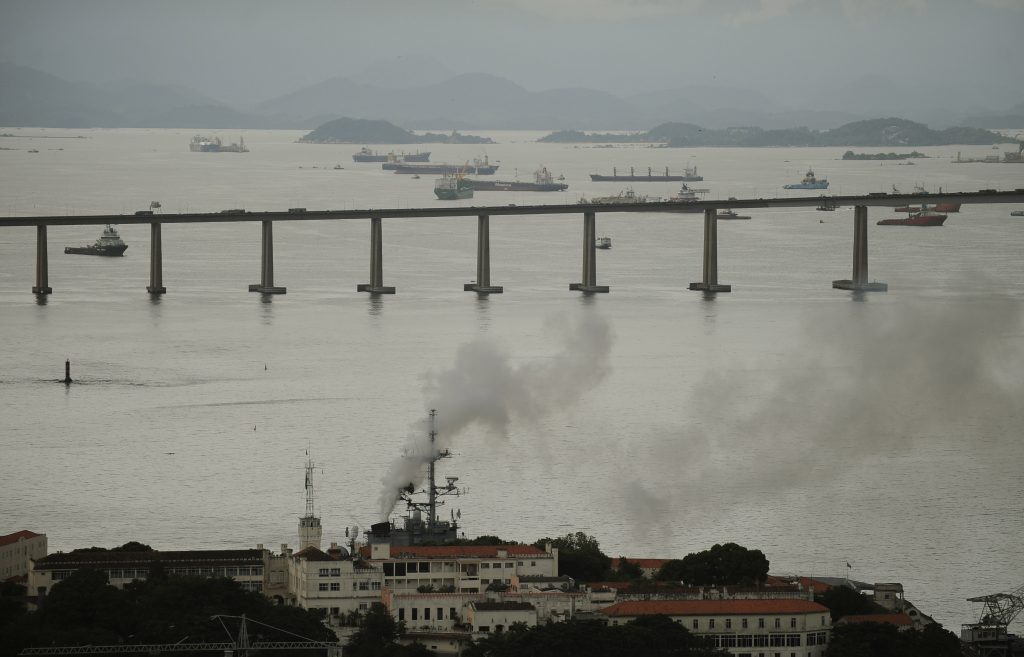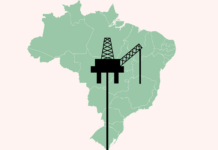By Xander Snyder and Allison Fedirka
This week Brazil decommissioned its sole aircraft carrier, the São Paulo. That Brazil even had an aircraft carrier may be news to some, let alone its decommission. Brazil floating an aircraft carrier is a challenge to the idea that geopolitics can predict behavior. There is no reason for Brazil to have an aircraft carrier. But nations do not always optimize their military capabilities or interests. Nations sometimes do things either because they don’t know what they are doing or because they have interests we don’t understand. Understanding the reason why a country like Brazil would have an aircraft carrier offers a window into the role of navies in second-tier military powers like Brazil. The logic of military moves by countries like the United States, Russia or China is different from that of Brazil.
Brazil sees the military’s role as primarily defensive and acting in an almost exclusively domestic theater. South America’s location in the Southern Hemisphere and the vast oceans on either side keep the continent comparatively isolated from the geopolitical chaos of the rest of the world. Furthermore, the continent has not experienced interstate warfare in nearly 80 years. The idea of an invasion or foreign attack by an organized military force is far-fetched. Many South American countries only entered democratic rule after a series of military dictatorships in the last 25-40 years. Among a large part of the population the collective memory of life under a military dictatorship still exists, and as a result, the armed forces are not highly esteemed by the general populace. Brazil has actively worked to create the image of a neutral, peaceful country that does not seek out military engagement.
A view of Guanabara Bay, with the smoking funnel of the São Paulo aircraft carrier hidden behind navy buildings, in Rio de Janeiro, Brazil, on May 8, 2012. VANDERLEI ALMEIDA/AFP/GettyImages
Geographically, Brazil’s vast and impenetrable rainforest and long Atlantic coastal borders provide a natural security buffer for the country. These border security features are the primary focus of Brazil’s military strategy and concern today. The green Amazon is a difficult border to penetrate, but at the same time these same features make it extremely difficult to guard. Drug trafficking and other types of illicit activities pour into Brazil through this land border. The army is also charged with monitoring the smooth running of the Itaipu hydroelectric dam shared with Paraguay, which serves as the main power source to many metropolitan areas in Brazil’s south and southeastern regions. The ocean, on the other hand, does face a great security threat. Brazil’s primary interest in protecting its adjacent seas and coast is to secure the vast oil deposits in the ocean’s seabed. This is a veritable gold mine for Brazil, especially if oil prices rise.
With this backdrop, it is still unclear why Brazil would have an interest in acquiring and maintaining an aircraft carrier. Brazil purchased the São Paulo from France in 2000, after it had already been used by the French navy for 37 years. A $12 million price tag (approximately $17 million in 2016 dollars) makes the purchase seem like a steal for Brazil (some sources claim the carrier cost $30 million in 2000, which is still a low figure). The São Paulo needed a slate of repairs and modernization upgrades that were implemented between 2005 and 2010 at a cost of approximately $100 million. Despite this, the São Paulo kept running into maintenance problems that interrupted its operations. Brazil cited ongoing maintenance requirements as the primary reason for decommissioning the carrier – those costs were estimated at approximately $324 million even after the 2005-2010 upgrades.
In 2000, Brazil’s defense minister discussed the motivations for acquiring an upgraded carrier: “The fact is that a country stops being ‘peripheral’ only when it is respected. And Brazil will be respected only if it has conditions and competence necessary for making its decisions at the international level. Without naval aviation, there is no way to defend a fleet.” This statement in part reflects internal political debates in Brazil including about the issue of who operates fighter jets in the Brazilian military. There is also the question of image – having an aircraft carrier improves, albeit at perhaps a more superficial level depending on how it is used, the image of a country’s military power. This reflects the South American concept of insertion – the practice of looking for actions and ways to make the country more relevant and included in international issues that it normally is not a part of. While not all attempts at insertion are successful, the guiding principle remains the same for both successes and failures.
The situation becomes even more puzzling when for most of the 2000s, Brazilian law did not authorize the navy to fly fighter jets. This branch of the armed services was confined to helicopter operations. The São Paulo carrier was purchased with the intent of one day replacing the vessel with a new aircraft carrier. That aircraft carrier would give Brazil the tools it needed to help control and safeguard the South Atlantic, due to its responsibility in the South Atlantic Peace and Cooperation Zone, as well as provide free navigation and law enforcement. However, with the continued discovery of pre-salt oil deposits, submarines soon became the more strategically important vessel for the navy, as they would help secure and protect a vital national resource.
Understanding Brazil’s decision to assume and later decommission the São Paulo requires a consideration of Brazil’s national interest. Brazil desires and is one of the few countries capable of high degrees of self-sufficiency. This is reflected in an economy that is sufficiently diversified so as to minimize the leverage a foreign country could have if it were to cut flow of any single critical resource. Between its oil and hydroelectric power, the country can produce vast amounts of electricity (though accompanying infrastructure is still a work in progress). Its booming agriculture industry can also provide a large portion of food for local consumption. While well endowed with natural resources, since the failure of import substitution schemes in the 1940-60s, Brazil has struggled with industrialization at a competitive level.
For this reason, Brazil highly prizes opportunities to acquire new technology and has used military purchases as a stimulus for industrial development. In recent years the agreement for inclusion of technology transfer has largely dictated which military acquisition deals Brazil will sign. The acquisition of the São Paulo must be viewed in part from this perspective: providing Brazil the opportunity to operate a new weapons system and gaining experience in carrier sailing formations. This carrier was never intended to be used as an offensive weapon.
The future production of navy vessels – either an aircraft carrier or submarine – provided an opportune moment for Brazil to further industrialize its economy. The government, at times to the chagrin of the military, would factor in industrial development alongside military imperatives or needs at the moment of budgetary allotments and project approvals. This has led to Brazil being well equipped, though perhaps at times at a higher sales price, to provide much of the basic goods needed to arm its troops as well as more complex things like aeronautics through companies like Embraer.
The decision to decommission the São Paulo is relatively simple. First, the submarine projects took on much more strategic significance for Brazil. Second, the military no longer has the finances to support the costly upkeep. Brazil suffered strong economic contractions of 3.8 percent in 2015 and 3.49 percent in 2016. What money the government does have to spend will not be on military development. The Brazilian public simply won’t allow it; rather, they demand that any extra funds go toward social welfare programs, education and healthcare.
All of these moves are part of Brazil’s longer-term national strategy to protect its national interest. The military figures into this national strategy, but does not solely dominate it. Brazil seeks to be as self-sufficient as possible with technology, a diversified economy, a competitive industry and a strong military capable of defending its borders and protecting its resources. The notion that Brazil has an aircraft carrier in the first place seems to belong to the world of farce, but with this framework in place, the rationale for purchasing and decommissioning the São Paulo reveals geopolitical truths of its own.









